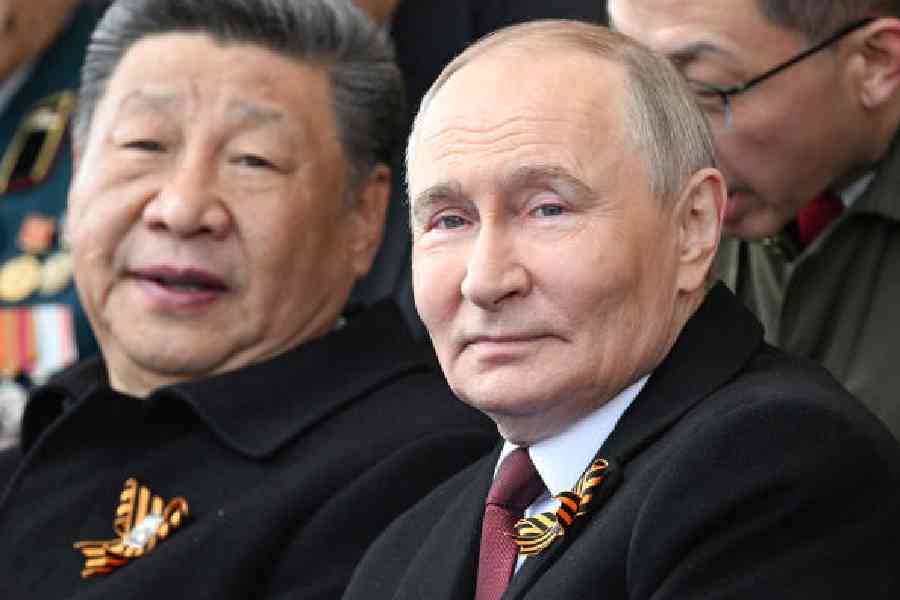In public, President Vladimir V. Putin of Russia says his country’s growing friendship with China is unshakable — a strategic military and economic collaboration that has entered a golden era.
But in the corridors of Lubyanka, the headquarters of Russia’s domestic security agency, known as the FSB, a secretive intelligence unit refers to the Chinese as “the enemy”.
This unit, which has not previously been disclosed, has warned that China is a serious threat to Russian security. Its officers say that Beijing is increasingly trying to recruit Russian spies and get its hands on sensitive military technology, at times by luring disaffected Russian scientists.
The intelligence officers say that China is spying on the Russian military’s operations in Ukraine to learn about western weapons and warfare. They fear that Chinese academics are laying the groundwork to make claims on Russian territory. And they have warned that Chinese intelligence agents are carrying out espionage in the Arctic using mining firms and university research centres as cover.
The threats are laid out in an eight-page internal FSB planning document, obtained by The New York Times, that sets priorities for fending off Chinese espionage. The document is undated, raising the possibility that it is a draft, though it appears from context to have been written in late 2023 or early 2024.
The document was obtained by a cybercrime group, Ares Leaks, which did not say how it did so. That makes definitive authentication impossible, but The Times shared the report with six western intelligence agencies, all of which assessed it to be authentic. The document gives the most detailed behind-the-scenes view to date of Russian counterintelligence’s thinking about China. Since Russia invaded Ukraine in February 2022, Moscow’s new bond with Beijing has shifted the global balance of power. The rapidly expanding partnership is one of the most consequential, and opaque, relationships in modern geopolitics.
Russia has survived years of western financial sanctions following the invasion, proving wrong the many politicians and experts who predicted the collapse of the country’s economy. That survival is in no small part due to China.
China is the largest customer for Russian oil and provides essential computer chips, software and military components. When western companies fled Russia, Chinese brands stepped in to replace them. The two countries say they want to collaborate in a vast number of areas, including making movies and building a base on the moon.
Putin and Xi Jinping, China’s leader, are doggedly pursuing what they call a partnership with “no limits”. But the top-secret FSB memo shows there are, in fact, limits.
“You have the political leadership, and these guys are all for rapprochement with China,” said Andrei Soldatov, an expert on Russia’s intelligence services who lives in exile in Britain and who reviewed the document at the request of The Times. “You have the intelligence and security services, and they are very suspicious.”
Three days before Putin invaded Ukraine in 2022, the FSB approved a new counterintelligence programme called “Entente-4”, the document reveals. The code name, an apparent tongue-in-cheek reference to Moscow’s growing friendship with Beijing, belied the initiative’s real intent: to prevent Chinese spies from undermining Russian interests.
The timing almost certainly was not accidental. Russia was diverting nearly all of its military and spy resources to Ukraine, more than 6,437km from its border with China, and most likely worried that Beijing could try to capitalise on this distraction.
Since then, according to the document, the FSB observed China doing just that. Chinese intelligence agents stepped up efforts to recruit Russian officials close to power in Moscow, the document says.
To counter this, the FSB instructed its officers to intercept the “threat” and “prevent the transfer of important strategic information to the Chinese”. Officers were ordered to conduct in-person meetings with Russian citizens who work closely with China.
New York Times News Service










